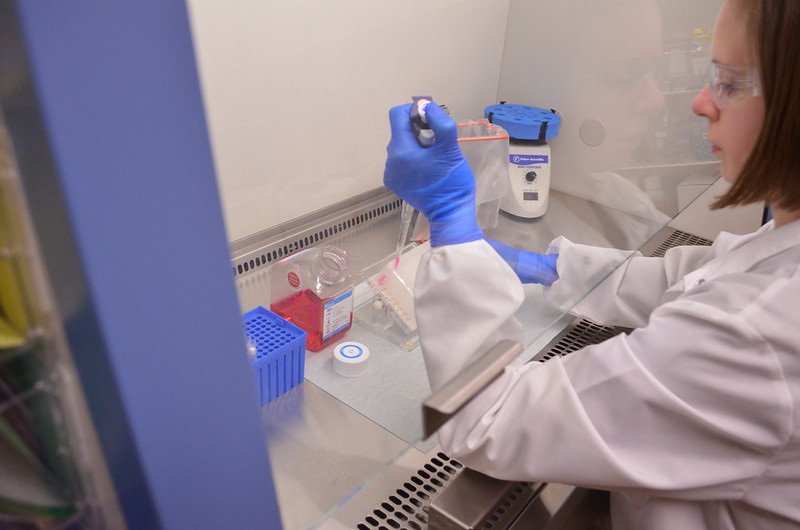OSU’s Veterinary Diagnostic Lab teams up with private lab to test for COVID-19

CORVALLIS, Ore. (KTVZ) — As health centers nationwide continue to struggle with limited testing for the virus that causes COVID-19, the Oregon Veterinary Diagnostic Laboratory at Oregon State University is teaming up with the private Corvallis-based WVT Laboratory to increase novel coronavirus testing for medical providers in Oregon and beyond.
The collaboration will be able to run at least 500 tests a day, said Dr. Mark Ackermann, director of the OVDL and a professor and board-certified pathologist in OSU’s Carlson College of Veterinary Medicine.
Ackermann said the two facilities have complementary capabilities that make the expanded testing capacity possible. OSU’s veterinary diagnostic lab has the instruments and technical knowledge to run RNA extractions and virus detection on COVID-19 test swabs, but is federally accredited to conduct tests with animal samples, not human samples.
WVT normally processes drug tests and has the necessary accreditation, lab infrastructure and experience working with human samples, but lacks the instruments and viral extraction expertise.
“It’s amazing with a group of educated, motivated people, how fast things can happen,” said Manny Cruz, owner of WVT Lab. “It’s like we met in the classroom, like, ‘Gosh, my house works for this, but I need the appliances from your place; if you bring the appliances from your house, we can start cooking!”
WVT has leased two instruments from the OVDL, which is part of the Carlson College of Veterinary Medicine, and hopes to be up and running by the end of the week. OSU staff will extract viral genetic material from the COVID-19 test swabs and then complete the process at WVT by running polymerase chain reaction (PCR) assays to determine which samples test positive for the virus. They also will train WVT staff to do the assays.
Running at full capacity, WVT will be able to complete up to 100 tests per hour per machine, Cruz said.
The connection between OSU and WVT came at an opportune time for both. The veterinary diagnostic lab had hit a wall in its pursuit of accreditation to run human samples. And WVT’s normal business of testing urine samples for the presence of drugs and alcohol for the Department of Human Services disappeared amid the COVID-19 pandemic and stay-home order.
On March 31, after Cruz furloughed his eight staff members at WVT, lab supervisor Rylan Reddekopp reached out to Benton County health providers offering the team’s services in their now-abundant free time.
Two hours later, Cruz said, Dr. Bruce Thomson, a local retired physician who still works closely with the county health department, walked in the door and shared what OSU’s veterinary lab was hoping to do. Thereafter, the collaboration came together quickly.
Veterinary lab staff have validated and verified the testing protocols and will soon begin processing samples while training WVT staff in some of the testing process, Ackermann said. Meanwhile, Cruz has already brought back a few furloughed staff members and hopes to bring back all eight employees as testing ramps up.
Medical providers will be able to submit requests and send in samples for COVID-19 testing in the same way they send requests for routine bloodwork, Cruz said. And because WVT is a national lab, they can accept samples from anywhere in the country, though Cruz said he wants to prioritize local testing needs first.
The OVDL is still handling veterinary cases including rabies diagnostics, herd health, food production health and animal transport. And lab staff are still caring for animal emergencies, and are prepared to test animals for COVID-19 if necessary. The veterinary lab is also working toward getting accreditation to test human samples, as it might be useful in the future, Ackermann said.
The two labs will be able to receive samples from local medical providers, and depending on need, may be called on to run tests for medical centers outside Corvallis or Oregon.
“When (the pandemic) first happened, I thought, ‘Our medical systems here in the U.S. will handle this.’ I didn’t realize they don’t have the capacity we do on the veterinary side,” Ackermann said. “But getting this arrangement — it’s fantastic that we can help.”